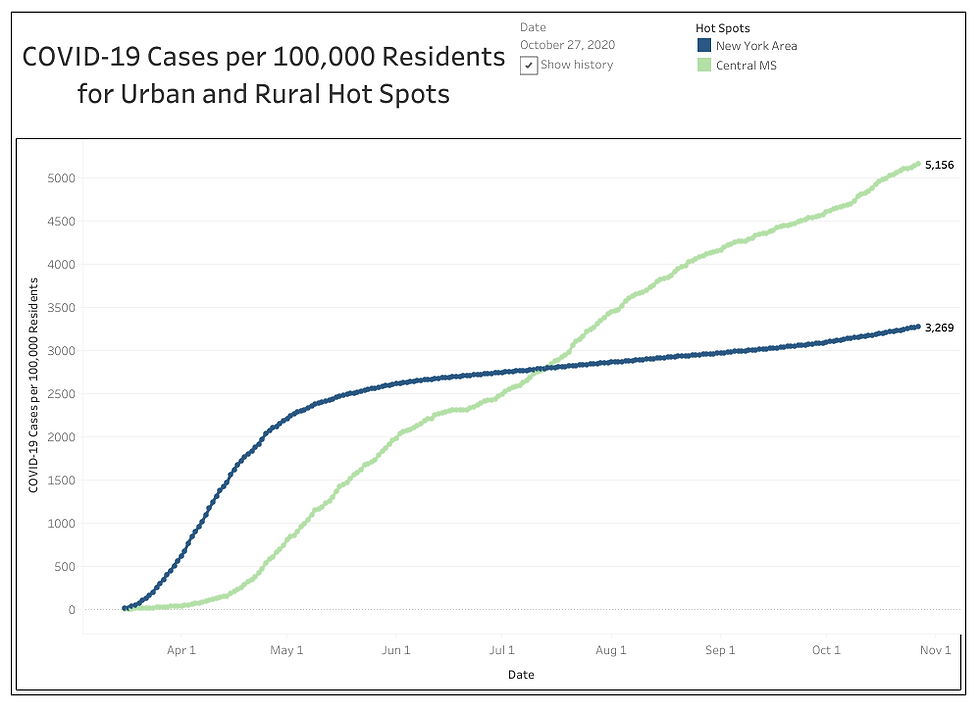Rural America outpace big cities with COVID-19 cases
- Amanda Decker

- Nov 21, 2020
- 2 min read
November 17, 2020
Lauderdale County - The so-called third wave of pandemic is taking its toll on small town America. Rural areas are being hit especially hard as cases of COVID-19 spike and hospitals fill up. It’s more dangerous to be in rural Mississippi than in big cities like New York or Chicago right now.
The Centers for Disease Control and Prevention finds people living in places like Lauderdale County and the surrounding areas are 2-and-a-half times more likely to die from COVID-19 now than people living in major metro areas.
Back in March, the nation watched as COVID-19 infections spread across big cities and hospitals in those areas were inundated.
That trend shifted in early July. Infection rates jumped in places like Lauderdale County and in surrounding counties while cases started leveling out in cities like New York.

The blue line represents New York and the green line represents Mississippi. The two points cross around mid-July when cases began falling in New York began to rising in Mississippi.
There are several factors at play.
People in rural areas are more likely to be in higher-risk categories, suffering from preexisting conditions like obesity, diabetes, and heart disease, at a higher rate than people living in big cities.
Another factor is access to care. In our area, people living outside the city center of Meridian have less access to healthcare. Over the last decade, 136 small hospitals in the United States have closed.
In these rural areas, access to resources such as grocery delivery and meal services are also harder to come by, which means people have no option but to leave home to buy groceries and other necessities.
The concern about rising cases in Lauderdale, Kemper, and other local counties is how to care for the rise in patients. Hospitals in Mississippi’s cities are filling up and in many cases, no longer accepting patient transfers from rural medical facilities.
As of Tuesday, November 17, Anderson Regional Medical Center was caring for 18 COVID-19 patients, four of whom are in the intensive care unit. Out of 116 total beds in the hospital, only 10 remain open.
Health officials say this report shines a light on the importance of following those mitigation guidelines of washing your hands, social distancing, and wearing a mask.
USDA study: The pandemic and rural America USDA







Comments